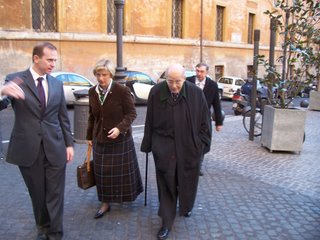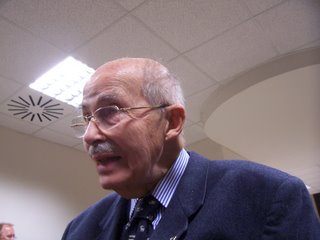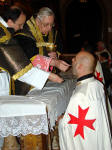 The answer to the question of where does one stay while on pilgrimage in the Holy Land is simple: stay in a Franciscan Pilgrim Hospice!
The answer to the question of where does one stay while on pilgrimage in the Holy Land is simple: stay in a Franciscan Pilgrim Hospice!The Franciscans have been custodians of the Holy Land churches and sanctuaries, pastors of the Latin Rite parishes there and guardians and guides of Catholic pilgrims for eight centuries now.
In the photo you see the Casa Nova (Hospitium Franciscanum) in Jerusalem. It's located in the Chrisitan quarter in the Old City of Jerusalem and just a five minute walk from the Holy Sepulchre (and just 15 euro a night and they feed you and they all speak English and Italian!).
The Franciscans have a great place in Bethlehem, too, next to the Church of the Nativity (www.cnop-beth.org). This is the site of their place in Jerusalem (www.custodia.org/casanovaj).



















































